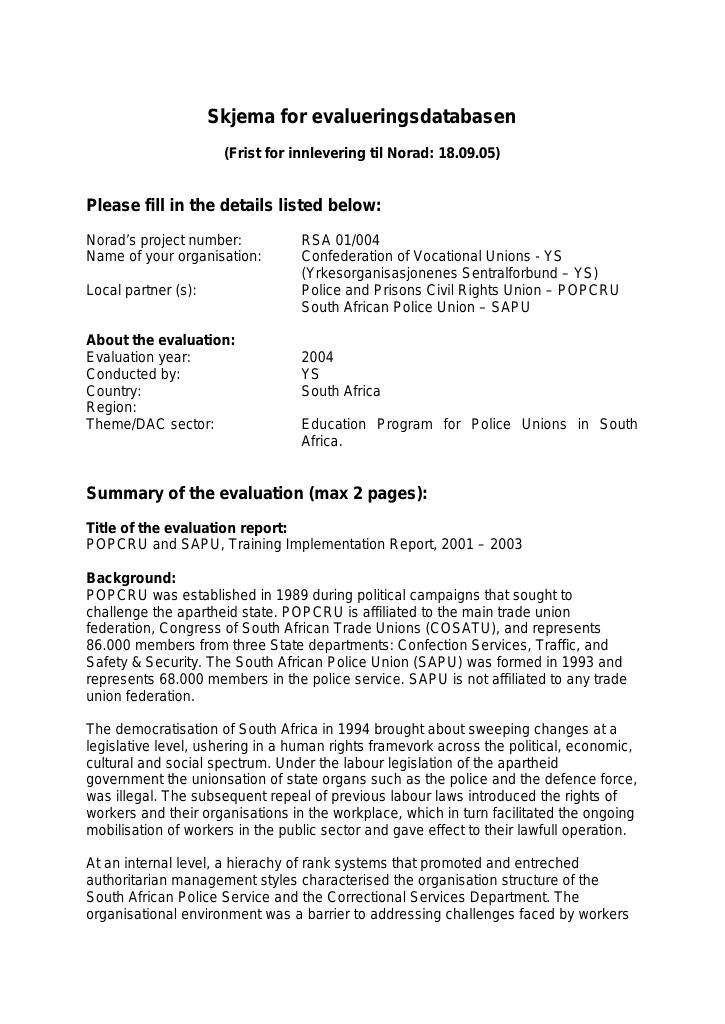Evaluering
POPCRU and SAPU, Training Implementation Report, 2001 – 2003
POPCRU was established in 1989 during political campaigns that sought to challenge the apartheid state. POPCRU is affiliated to the main trade union federation, Congress of South African Trade Unions (COSATU), and represents 86.000 members from three State departments: Confection Services, Traffic, and Safety & Security. The South African Police Union (SAPU) was formed in 1993 and represents 68.000 members in the police service. SAPU is not affiliated to any trade union federation. The democratisation of South Africa in 1994 brought about sweeping changes at a legislative level, ushering in a human rights framevork across the political, economic, cultural and social spectrum. Under the labour legislation of the apartheid government the unionsation of state organs such as the police and the defence force, was illegal. The subsequent repeal of previous labour laws introduced the rights of workers and their organisations in the workplace, which in turn facilitated the ongoing mobilisation of workers in the public sector and gave effect to their lawfull operation. At an internal level, a hierachy of rank systems that promoted and entreched authoritarian management styles characterised the organisation structure of the South African Police Service and the Correctional Services Department. The organisational environment was a barrier to addressing challenges faced by workers which includes low pay, long working hours, dangerous working conditions and low morale. It was hostility to trade unionism, which was perceived to be a mechanism through which autority was being undermined. This potentially obstructed the develompent of sound labour relations whitin the organisation. Externally, the organisation's image was tarnished. Its historical role as an oppressive organ of the State was further diminished by a public view that it was incapable of dealing with crime. POPCRU believed that the labour relations problems encoutered by its membership in the safety and security sector and in correctional services was partly due to a lack of appropriate professional skills. It was therefore imperative that education and training initiatives included a component of professional responsibility as a positive contribution to effective service delivery. SAPU's position was that as long as conditions of service remained poor, morale would continue to be low and service delivery would continue to suffer. It argued that if was paramount importance to invest in improving management as an approach to building sound labour relations in the police service.
